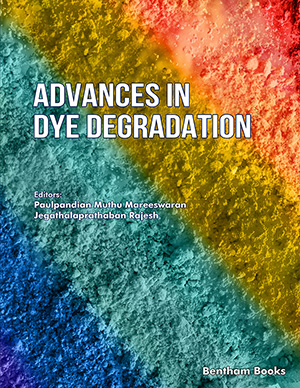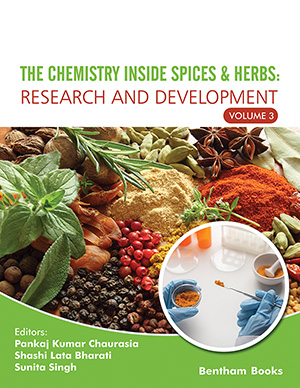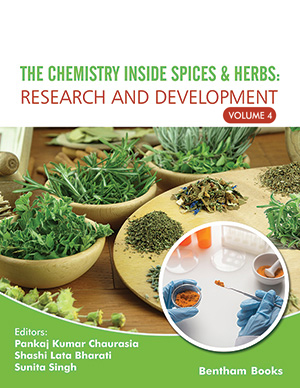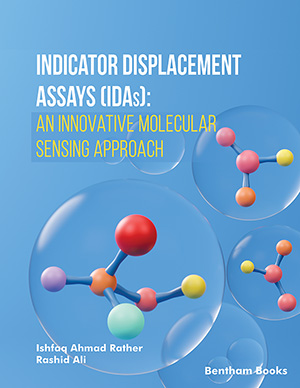摘要
几十年前,结直肠癌 (CRC) 的发病率很低,现在在每年造成近 100 万人死亡的致命癌症中排名第四。人口老龄化以及吸烟、肥胖、久坐不动的生活方式以及发达国家的不健康饮食习惯等风险因素会增加患结直肠癌的风险。肠道微生物群的平衡和宿主内细菌发酵过程中产生的代谢物在调节肠道疾病和结直肠癌的发展中起着重要作用。对疾病认识的最新进展导致了多种治疗选择,例如手术、放疗和化疗,包括靶向治疗和多种疗法。 CRC 的治疗计划取决于癌症的位置、阶段和等级以及基因组生物标志物测试。尽管在疾病的遗传和分子方面取得了所有进步,但由于药物作用以及药物反应的广泛变化似乎与个体分子和遗传特征没有密切相关,因此知识似乎不足,这表明需要对这种复杂异质性疾病的全面分子理解。此外,需要在临床研究中验证多种疗法或广谱方法,这是各种有前途且有效的治疗策略的结合,可以解决异质性并作用于疾病的多个目标。在晚期疾病的情况下,最新的治疗方案显着增加了长达三年的存活率。结直肠癌是由息肉样前体发展而来的事实,以及在晚期发生的疾病症状,强调了筛查计划如何帮助早期发现和降低 CRC 的死亡率和发病率。
关键词: 结直肠癌、靶向治疗、天然化合物、微生物群、多种疗法、CRC 发病率。
[http://dx.doi.org/10.3892/ol.2018.8679] [PMID: 29928381]
[http://dx.doi.org/10.1038/nrclinonc.2016.171] [PMID: 27922044]
[http://dx.doi.org/10.1126/science.1243148] [PMID: 24264992]
[http://dx.doi.org/10.1146/annurev-pathol-011110-130235] [PMID: 21090969]
[http://dx.doi.org/10.1056/NEJMra0804588] [PMID: 20018966]
[http://dx.doi.org/10.1038/nrgastro.2015.73] [PMID: 25963511]
[http://dx.doi.org/10.1053/j.gastro.2008.10.086] [PMID: 19103203]
[http://dx.doi.org/10.1056/NEJMoa032691] [PMID: 15175435]
[http://dx.doi.org/10.1093/annonc/mdu253] [PMID: 25015334]
[http://dx.doi.org/10.1055/s-0032-1309795] [PMID: 23012124]
[http://dx.doi.org/10.1038/nrgastro.2016.165] [PMID: 27848961]
[http://dx.doi.org/10.3390/ijms18010197] [PMID: 28106826]
[http://dx.doi.org/10.1080/14756366.2020.1755670] [PMID: 32321320]
[http://dx.doi.org/10.1016/j.semcancer.2015.09.007] [PMID: 26590477]
[http://dx.doi.org/10.3322/caac.21492] [PMID: 30207593]
[http://dx.doi.org/10.1016/S2468-1253(19)30329-2] [PMID: 31648973]
[http://dx.doi.org/10.1053/j.gastro.2009.10.051] [PMID: 19900449]
[http://dx.doi.org/10.1038/nrdp.2015.65] [PMID: 27189416]
[http://dx.doi.org/10.1038/nrgastro.2014.229] [PMID: 25582351]
[http://dx.doi.org/10.1136/bmj.h4970] [PMID: 26442928]
[http://dx.doi.org/10.1056/NEJMp1600448] [PMID: 27119236]
[http://dx.doi.org/10.1053/j.gastro.2019.11.304] [PMID: 31863742]
[http://dx.doi.org/10.1001/jamasurg.2014.1756] [PMID: 25372703]
[http://dx.doi.org/10.3322/caac.21457] [PMID: 29846947]
[http://dx.doi.org/10.1016/j.clcc.2018.10.002] [PMID: 30420120]
[http://dx.doi.org/10.1038/s41575-019-0189-8] [PMID: 31455888]
[http://dx.doi.org/10.1038/gim.2014.188] [PMID: 25590981]
[http://dx.doi.org/10.1053/j.gastro.2015.07.055] [PMID: 26255045]
[http://dx.doi.org/10.1016/S0140-6736(19)32319-0] [PMID: 31631858]
[http://dx.doi.org/10.1093/hmg/ddu087] [PMID: 24562164]
[http://dx.doi.org/10.1038/ajg.2014.435] [PMID: 25645574]
[http://dx.doi.org/10.1136/gutjnl-2011-300295] [PMID: 22110052]
[http://dx.doi.org/10.1016/j.cgh.2012.01.010] [PMID: 22289873]
[http://dx.doi.org/10.1136/gutjnl-2012-304356] [PMID: 23408351]
[http://dx.doi.org/10.1001/jama.2008.839] [PMID: 19088354]
[http://dx.doi.org/10.1136/bmj.j477] [PMID: 28246088]
[http://dx.doi.org/10.1097/CEJ.0000000000000076] [PMID: 25170915]
[http://dx.doi.org/10.1371/journal.pone.0020456] [PMID: 21674008]
[http://dx.doi.org/10.1016/j.ejca.2011.07.010] [PMID: 21889332]
[http://dx.doi.org/10.1038/ncomms9727] [PMID: 26515465]
[http://dx.doi.org/10.1016/j.chom.2013.07.007] [PMID: 23954159]
[http://dx.doi.org/10.1016/j.celrep.2020.03.035] [PMID: 32268087]
[http://dx.doi.org/10.3748/wjg.v20.i48.18121] [PMID: 25561781]
[http://dx.doi.org/10.1042/BJ20141337] [PMID: 25940732]
[http://dx.doi.org/10.1177/1756283X12473674] [PMID: 23634186]
[http://dx.doi.org/10.3748/wjg.v20.i4.908] [PMID: 24574765]
[http://dx.doi.org/10.1128/mBio.00692-13] [PMID: 24194538]
[http://dx.doi.org/10.1038/s41575-019-0209-8] [PMID: 31554963]
[http://dx.doi.org/10.1016/j.mam.2019.05.001] [PMID: 31082399]
[http://dx.doi.org/10.3748/wjg.v22.i2.557] [PMID: 26811607]
[http://dx.doi.org/10.1007/s13277-015-4724-0] [PMID: 26718210]
[http://dx.doi.org/10.1016/j.imlet.2014.05.014] [PMID: 24972311]
[http://dx.doi.org/10.1172/JCI72334] [PMID: 25105360]
[http://dx.doi.org/10.1016/j.femsre.2004.07.002] [PMID: 15652977]
[http://dx.doi.org/10.1038/onc.2012.508] [PMID: 23503457]
[http://dx.doi.org/10.1158/1078-0432.CCR-13-1343] [PMID: 24334760]
[http://dx.doi.org/10.1111/j.1365-2672.1992.tb04882.x] [PMID: 1541601]
[http://dx.doi.org/10.1002/mnfr.201100542] [PMID: 22121108]
[http://dx.doi.org/10.1194/jlr.R036012] [PMID: 23821742]
[http://dx.doi.org/10.3389/fimmu.2019.00277] [PMID: 30915065]
[http://dx.doi.org/10.1093/advances/nmx009] [PMID: 29438462]
[http://dx.doi.org/10.1111/asj.13118] [PMID: 30370625]
[http://dx.doi.org/10.3164/jcbn.15-15] [PMID: 26566306]
[http://dx.doi.org/10.1002/ijc.29479] [PMID: 25683336]
[http://dx.doi.org/10.1016/j.biopha.2006.07.080] [PMID: 17045449]
[http://dx.doi.org/10.1056/NEJMoa1309086] [PMID: 24693890]
[http://dx.doi.org/10.1007/s00330-017-5026-2] [PMID: 29043428]
[http://dx.doi.org/10.2214/AJR.15.15785] [PMID: 27490941]
[http://dx.doi.org/10.1016/S0140-6736(18)30789-X] [PMID: 29754777]
[http://dx.doi.org/10.1200/JCO.2009.27.1825] [PMID: 20498393]
[http://dx.doi.org/10.1159/000494649] [PMID: 30359964]
[http://dx.doi.org/10.1186/1741-7015-9-133] [PMID: 22168215]
[http://dx.doi.org/10.1586/14737159.2013.811896] [PMID: 23895128]
[http://dx.doi.org/10.1111/joim.12897] [PMID: 30861222]
[http://dx.doi.org/10.1016/j.gie.2013.04.185] [PMID: 23910062]
[http://dx.doi.org/10.1016/j.gie.2015.11.014] [PMID: 26608129]
[http://dx.doi.org/10.1016/j.gie.2016.01.067] [PMID: 26859866]
[http://dx.doi.org/10.1186/s12885-016-2428-5] [PMID: 27377924]
[http://dx.doi.org/10.1038/nrgastro.2011.149] [PMID: 21894197]
[http://dx.doi.org/10.1007/s11523-017-0518-1] [PMID: 28801849]
[http://dx.doi.org/10.1002/ijc.26179] [PMID: 21618508]
[http://dx.doi.org/10.1021/cb300648v] [PMID: 23259582]
[http://dx.doi.org/10.18632/oncotarget.14012] [PMID: 28002810]
[http://dx.doi.org/10.1038/s41392-020-0116-z] [PMID: 32296018]
[http://dx.doi.org/10.3747/co.v18i1.708] [PMID: 21331278]
[http://dx.doi.org/10.1038/nrc1074] [PMID: 12724731]
[http://dx.doi.org/10.1016/j.biopha.2018.11.105] [PMID: 30522017]
[http://dx.doi.org/10.1038/s41598-017-00839-9] [PMID: 28386133]
[PMID: 26722024]
[http://dx.doi.org/10.1080/14712598.2019.1680636] [PMID: 31642347]
[PMID: 32720931]
[http://dx.doi.org/10.2147/BTT.S39360] [PMID: 24368879]
[http://dx.doi.org/10.1093/jn/135.1.129] [PMID: 15623844]
[http://dx.doi.org/10.1002/biof.5520270112] [PMID: 17012770]
[http://dx.doi.org/10.3945/ajcn.113.060996] [PMID: 23803888]
[http://dx.doi.org/10.1038/19655] [PMID: 10235258]
[http://dx.doi.org/10.1093/jn/133.2.381] [PMID: 12566471]
[http://dx.doi.org/10.1002/biof.5520130115] [PMID: 11237205]
[http://dx.doi.org/10.1016/j.bbagen.2006.11.008] [PMID: 17189673]
[http://dx.doi.org/10.1097/00008469-200608000-00005] [PMID: 16835502]
[http://dx.doi.org/10.1002/mnfr.200700272] [PMID: 18537129]
[http://dx.doi.org/10.1093/carcin/bgq157] [PMID: 20699249]
[http://dx.doi.org/10.1021/jf2017644] [PMID: 21744871]
[http://dx.doi.org/10.1016/j.canlet.2008.03.046] [PMID: 18467024]
[http://dx.doi.org/10.1111/j.1349-7006.2000.tb01000.x] [PMID: 10920275]
[http://dx.doi.org/10.4103/0973-1296.153096] [PMID: 25829782]
[http://dx.doi.org/10.1158/1535-7163.MCT-08-0363] [PMID: 18852136]
[http://dx.doi.org/10.1016/j.bbrc.2004.12.151] [PMID: 15670774]
[http://dx.doi.org/10.1080/07357900802337191] [PMID: 19440933]
[http://dx.doi.org/10.1021/jf101510z] [PMID: 20681654]
[http://dx.doi.org/10.1111/1750-3841.12580] [PMID: 25141990]
[http://dx.doi.org/10.1016/j.saa.2017.06.041] [PMID: 28689079]
[http://dx.doi.org/10.1039/C8FO00850G] [PMID: 30118121]
[http://dx.doi.org/10.15430/JCP.2016.21.4.216] [PMID: 28053955]
[http://dx.doi.org/10.1016/j.canlet.2017.10.041] [PMID: 29097249]
[http://dx.doi.org/10.1016/j.etap.2009.09.006] [PMID: 21787582]
[http://dx.doi.org/10.1016/j.ejphar.2016.12.019] [PMID: 27989504]
[http://dx.doi.org/10.1046/j.1365-2036.2001.01133.x] [PMID: 11736735]
[http://dx.doi.org/10.1016/j.biopha.2018.02.035] [PMID: 29453046]
[http://dx.doi.org/10.3892/ijo.2015.2967] [PMID: 25892545]
[http://dx.doi.org/10.1021/jf801342p] [PMID: 18710248]
[http://dx.doi.org/10.1016/j.abb.2010.05.019] [PMID: 20494645]
[http://dx.doi.org/10.1002/mc.20477] [PMID: 18729103]
[http://dx.doi.org/10.4062/biomolther.2015.109] [PMID: 26797111]
[http://dx.doi.org/10.1016/j.nutres.2011.01.006] [PMID: 21419311]
[http://dx.doi.org/10.1093/jn/133.10.3262S] [PMID: 14519824]
[http://dx.doi.org/10.1158/0008-5472.CAN-05-3636] [PMID: 16510563]
[http://dx.doi.org/10.1002/mc.21974] [PMID: 23124926]
[http://dx.doi.org/10.1021/acs.jafc.6b04096] [PMID: 27790915]
[http://dx.doi.org/10.1021/acs.jafc.7b00278] [PMID: 28391699]
[http://dx.doi.org/10.7555/JBR.30.20150111] [PMID: 27476880]
[http://dx.doi.org/10.3390/ijms150712094] [PMID: 25007066]
[http://dx.doi.org/10.1002/mc.21843] [PMID: 22086675]
[http://dx.doi.org/10.1007/s13277-014-2487-7] [PMID: 25128065]
[http://dx.doi.org/10.29219/fnr.v62.1384] [PMID: 29849534]
[http://dx.doi.org/10.1007/s13105-013-0290-3] [PMID: 24057513]
[http://dx.doi.org/10.21873/anticanres.11495] [PMID: 28373425]
[http://dx.doi.org/10.1016/j.canlet.2007.03.005] [PMID: 17448598]
[http://dx.doi.org/10.1016/S0304-3835(01)00655-3] [PMID: 11566484]
[PMID: 11396178]
[http://dx.doi.org/10.1016/j.phrs.2012.03.010] [PMID: 22465196]
[http://dx.doi.org/10.1186/1471-2407-10-238] [PMID: 20504360]
[http://dx.doi.org/10.5045/br.2018.53.1.53] [PMID: 29662863]
[http://dx.doi.org/10.1016/j.bcp.2012.08.011] [PMID: 22935447]
[http://dx.doi.org/10.1371/journal.pone.0078700] [PMID: 24244343]
[http://dx.doi.org/10.1016/j.ejphar.2010.01.025] [PMID: 20132809]
[http://dx.doi.org/10.1207/S15327914nc392_15] [PMID: 11759289]
[http://dx.doi.org/10.1016/j.canlet.2007.08.020] [PMID: 17923279]
[http://dx.doi.org/10.3892/ijmm.2012.1147] [PMID: 23026853]
[http://dx.doi.org/10.1007/s11010-013-1907-0] [PMID: 24281858]
[http://dx.doi.org/10.1007/s11010-014-2257-2] [PMID: 25355159]
[http://dx.doi.org/10.1124/jpet.114.221796] [PMID: 25758919]
[http://dx.doi.org/10.1093/carcin/bgp285] [PMID: 19959557]
[http://dx.doi.org/10.1207/s15327914nc4802_10] [PMID: 15231455]
[http://dx.doi.org/10.1208/s12248-009-9162-8] [PMID: 20013083]
[http://dx.doi.org/10.1186/1476-4598-10-68] [PMID: 21624135]
[http://dx.doi.org/10.3892/ijo.2015.3200] [PMID: 26498863]
[http://dx.doi.org/10.2174/1568009617666170206104032] [PMID: 28176652 ]
[http://dx.doi.org/10.1038/cddis.2014.495] [PMID: 25412312]
[http://dx.doi.org/10.3892/or.2012.2093] [PMID: 23117412]
[http://dx.doi.org/10.1093/carcin/17.2.369] [PMID: 8625465]
[PMID: 9012468]
[PMID: 9855569]
[http://dx.doi.org/10.1002/ijc.23923] [PMID: 19003968]
[http://dx.doi.org/10.1080/14786419.2014.889133] [PMID: 24588282]
[http://dx.doi.org/10.1097/CAD.0000000000000263] [PMID: 26214321]
[http://dx.doi.org/10.1016/j.bbrc.2015.04.030] [PMID: 25881504]
[http://dx.doi.org/10.1016/j.cbi.2008.06.006] [PMID: 18619950]
[http://dx.doi.org/10.1055/s-0030-1250039] [PMID: 20539971]
[http://dx.doi.org/10.18632/oncotarget.9180] [PMID: 27166181]
[http://dx.doi.org/10.1007/s00210-006-0090-1] [PMID: 16964520]
[http://dx.doi.org/10.1186/1471-2407-11-371] [PMID: 21864401]
[http://dx.doi.org/10.18632/oncotarget.20077] [PMID: 29207638]
[http://dx.doi.org/10.1016/j.canlet.2011.02.005] [PMID: 21382660]
[http://dx.doi.org/10.3892/ijo.2014.2281] [PMID: 24481553]
[http://dx.doi.org/10.1111/jcmm.12033] [PMID: 23490077]
[http://dx.doi.org/10.1097/CAD.0000000000000590] [PMID: 29389802]
[http://dx.doi.org/10.1002/pmic.201300101] [PMID: 24420967]
[http://dx.doi.org/10.1002/ijc.30805] [PMID: 28560805]
[http://dx.doi.org/10.1016/j.clcc.2017.10.012] [PMID: 29153429]
[http://dx.doi.org/10.1111/codi.13207] [PMID: 26531759]
[http://dx.doi.org/10.1155/2018/4326082 ] [PMID: 30034465]
[http://dx.doi.org/10.1016/j.critrevonc.2016.01.017] [PMID: 26867984]
[http://dx.doi.org/10.1007/s10585-015-9719-0] [PMID: 25899064]
[http://dx.doi.org/10.1038/srep29765] [PMID: 27416752]
[http://dx.doi.org/10.1245/ASO.2005.06.012] [PMID: 15965730]
[http://dx.doi.org/10.1200/JCO.2005.04.0063] [PMID: 16260687]
[http://dx.doi.org/10.1155/2019/7407190] [PMID: 31641356]
[http://dx.doi.org/10.1002/bjs.8679] [PMID: 22287157]
[http://dx.doi.org/10.1016/j.ejso.2013.10.001] [PMID: 24183168]
[http://dx.doi.org/10.1097/DCR.0b013e3182a62d9d] [PMID: 24201391]
[http://dx.doi.org/10.1016/j.prp.2015.05.010] [PMID: 26092594]
[http://dx.doi.org/10.1007/s10585-016-9791-0] [PMID: 27074785]
[http://dx.doi.org/10.1371/journal.pone.0192958] [PMID: 29462209]
[http://dx.doi.org/10.1007/s00428-012-1287-y] [PMID: 22825001]
[http://dx.doi.org/10.1038/ncb2717] [PMID: 23548926]
[http://dx.doi.org/10.1146/annurev-pathol-012615-044438] [PMID: 27193450]
[http://dx.doi.org/10.1038/nature21713] [PMID: 28358093]
[http://dx.doi.org/10.1038/nature22081] [PMID: 28355176]
[http://dx.doi.org/10.1038/nature11252] [PMID: 22810696]
[http://dx.doi.org/10.1016/j.tranon.2019.10.011] [PMID: 31896527]
[http://dx.doi.org/10.1093/carcin/bgaa074] [PMID: 32649737]
[http://dx.doi.org/10.1016/j.ejso.2014.11.001] [PMID: 25468456]
[http://dx.doi.org/10.1158/1078-0432.CCR-17-2484] [PMID: 29180604]
[http://dx.doi.org/10.1038/nrc.2016.126] [PMID: 28050011]
[http://dx.doi.org/10.1038/nm.3967] [PMID: 26457759]
[http://dx.doi.org/10.6004/jnccn.2017.0038] [PMID: 28275039]
[http://dx.doi.org/10.1053/j.gastro.2008.07.076] [PMID: 18773902]
[http://dx.doi.org/10.1053/j.gastro.2009.12.065] [PMID: 20420946]
[http://dx.doi.org/10.3390/cancers11010004] [PMID: 30577483]
[http://dx.doi.org/10.1158/1078-0432.CCR-11-1469] [PMID: 22302899]
[http://dx.doi.org/10.1053/j.gastro.2009.12.064] [PMID: 20420947]
[http://dx.doi.org/10.1093/jnci/djh034] [PMID: 14970275]
[http://dx.doi.org/10.1038/ng1834] [PMID: 16804544]
[http://dx.doi.org/10.1038/nrgastro.2011.173] [PMID: 22009203]
[http://dx.doi.org/10.1111/j.1440-1746.2012.07200.x] [PMID: 22694276]
[http://dx.doi.org/10.1016/j.tcb.2008.09.002] [PMID: 18848448]
[http://dx.doi.org/10.1002/jso.23806] [PMID: 25297801]
[http://dx.doi.org/10.4331/wjbc.v6.i4.290] [PMID: 26629312]
[http://dx.doi.org/10.1371/journal.pone.0087456] [PMID: 24503701]
[http://dx.doi.org/10.1186/1471-2407-14-802] [PMID: 25367198]
[http://dx.doi.org/10.1186/s12885-015-1345-3] [PMID: 25929517]
[http://dx.doi.org/10.3748/wjg.v21.i4.1275] [PMID: 25632202]
[http://dx.doi.org/10.1007/s11523-014-0319-8] [PMID: 24859797]
[http://dx.doi.org/10.1158/1078-0432.CCR-14-2779] [PMID: 25589621]
[http://dx.doi.org/10.18632/oncotarget.4750] [PMID: 26299805]
[http://dx.doi.org/10.1371/journal.pone.0065479] [PMID: 23785428]
[http://dx.doi.org/10.1158/1078-0432.CCR-11-2410] [PMID: 22357840]
[http://dx.doi.org/10.1002/cam4.97] [PMID: 24156022]
[http://dx.doi.org/10.1007/s10350-004-0628-6] [PMID: 15486743]
[http://dx.doi.org/10.1016/j.ejca.2005.04.039] [PMID: 16125380]
[http://dx.doi.org/10.1038/sj.bjc.6602358] [PMID: 15668707]
[http://dx.doi.org/10.1054/bjoc.2001.2095] [PMID: 11720434]
[http://dx.doi.org/10.1007/s11356-019-07231-2] [PMID: 31884543]
[http://dx.doi.org/10.1016/j.ejmech.2019.111602] [PMID: 31421629]
[http://dx.doi.org/10.1093/annonc/mdq222] [PMID: 20555112]
[http://dx.doi.org/10.1634/theoncologist.2019-0328] [PMID: 32043796]
[http://dx.doi.org/10.1634/theoncologist.10-4-250] [PMID: 15821245]
[http://dx.doi.org/10.1038/sj.bjc.6603018] [PMID: 16508634]
[http://dx.doi.org/10.1200/JCO.2007.14.7116] [PMID: 18316791]
[http://dx.doi.org/10.1634/theoncologist.12-5-577] [PMID: 17522246]
[http://dx.doi.org/10.1007/s00253-020-10487-1] [PMID: 32112134]
[http://dx.doi.org/10.1099/jmm.0.048975-0] [PMID: 23558140]
[http://dx.doi.org/10.1007/s11274-013-1499-6] [PMID: 24068536]
[http://dx.doi.org/10.3748/wjg.v20.i24.7878] [PMID: 24976724]
[http://dx.doi.org/10.1002/ijc.26193] [PMID: 21607947]
[http://dx.doi.org/10.1017/S0007114511004934] [PMID: 21992995]
[http://dx.doi.org/10.1111/j.1472-765X.2006.01913.x] [PMID: 16620202]
[http://dx.doi.org/10.1016/j.foodchem.2014.01.105] [PMID: 24629967]
[http://dx.doi.org/10.1097/PPO.0000000000000197] [PMID: 27341603]
[http://dx.doi.org/10.1016/j.ejphar.2014.07.025] [PMID: 25058905]
[http://dx.doi.org/10.1016/j.cbpa.2014.02.003] [PMID: 24608084]
[http://dx.doi.org/10.2174/156802612799078964] [PMID: 22236158]
[http://dx.doi.org/10.1038/nrd1691] [PMID: 15789122]
[http://dx.doi.org/10.1200/JCO.2000.18.16.2938] [PMID: 10944126]
[http://dx.doi.org/10.1016/j.clcc.2011.10.004] [PMID: 22154408]
[http://dx.doi.org/10.1146/annurev-med-051513-102539] [PMID: 25341011]
[http://dx.doi.org/10.2174/0929867321666131217161849] [PMID: 24350852]
[http://dx.doi.org/10.1038/s41598-019-48584-5] [PMID: 31451718]
[http://dx.doi.org/10.1039/C2CC37366A] [PMID: 23223325]
[http://dx.doi.org/10.2741/s274] [PMID: 22202066]
[http://dx.doi.org/10.1371/journal.pone.0124487] [PMID: 25886253]
[http://dx.doi.org/10.18632/oncotarget.6425] [PMID: 26625200]
[http://dx.doi.org/10.1081/FRI-200040606]
[http://dx.doi.org/10.1016/j.jff.2015.06.018]
[http://dx.doi.org/10.1371/journal.pone.0159136] [PMID: 27467555]
[http://dx.doi.org/10.1200/JCO.2014.55.3024] [PMID: 24958826]
[http://dx.doi.org/10.1001/jama.2009.1112] [PMID: 19671906]
[http://dx.doi.org/10.1056/NEJMoa1207756] [PMID: 23094721]
[http://dx.doi.org/10.1007/978-3-0348-0837-8_2]
[http://dx.doi.org/10.7326/0003-4819-115-12-952] [PMID: 1659272]
[http://dx.doi.org/10.1158/1940-6207.CAPR-11-0222] [PMID: 21764859]
[http://dx.doi.org/10.1016/j.ejim.2015.03.008] [PMID: 25862494]
[http://dx.doi.org/10.1038/35094017] [PMID: 11900248]
[http://dx.doi.org/10.1016/S0140-6736(04)17514-4] [PMID: 15582059]
[http://dx.doi.org/10.1001/jama.284.10.1247] [PMID: 10979111]
[http://dx.doi.org/10.1056/NEJMoa050405] [PMID: 15713944]
[http://dx.doi.org/10.1111/jphp.12372] [PMID: 25650335]
[http://dx.doi.org/10.1158/1078-0432.CCR-05-0171] [PMID: 16166455]
[http://dx.doi.org/10.1158/0008-5472.CAN-10-2258] [PMID: 21266362]
[http://dx.doi.org/10.1200/jco.2013.31.15_suppl.e14517]





























